Discover the world of backcountry camping for beginners and embark on an exciting outdoor adventure. Whether you’re a novice or have some experience.
This blog post will provide you with the basics of backpacking and guide you on how to get started with backcountry camping.
Here are 10 tips for backcountry camping for beginners:
- Plan and Research: Start by thoroughly researching the area you plan to visit. Understand the local terrain, weather, wildlife, and regulations. Make a detailed itinerary and share it with someone who will not be on the trip.
- Choose the Right Gear: Invest in high-quality, lightweight gear designed for backcountry camping. Essentials include a backpack, tent, sleeping bag, stove, water filtration system, and appropriate clothing.
- Practice Packing: Learn how to pack your backpack efficiently. Keep heavy items close to your back and distribute weight evenly. Test your pack on shorter trips to ensure it’s comfortable.
- Leave No Trace: Follow the Leave No Trace principles, which include packing out all trash, minimizing campfire impact, and camping at least 200 feet from lakes and streams. Respect the environment.
- Navigation Skills: Learn how to use a map and compass or a GPS device. Practice your navigation skills before embarking on a backcountry trip to avoid getting lost.
- Food and Water: Plan your meals and pack lightweight, high-calorie foods. Research water sources along your route and carry a reliable water filtration system or purification tablets.
- First Aid and Safety: Carry a basic first aid kit and know how to use it. Be prepared for emergencies with communication devices like a satellite messenger or a personal locator beacon.
- Hiking Skills: Understand hiking basics like pacing yourself, choosing the right footwear, and recognizing signs of altitude sickness or hypothermia. Know your limits and adjust your plans accordingly.
- Weather Preparedness: Check the weather forecast before your trip and be prepared for changing conditions. Dress in layers to stay warm and dry. Always have a backup plan in case of extreme weather.
- Group Dynamics: If you’re camping with others, communicate openly, and establish a plan for what to do if you get separated. Share responsibilities and work as a team to ensure a safe and enjoyable trip.
Contents
From choosing the right gear to planning your route, we’ll cover all the essential information you need to know.
Explore breathtaking trails, sleep under the stars, and immerse yourself in nature’s beauty.
Get ready to embrace the thrill of venturing off the beaten path as we dive into backcountry camping for beginners.
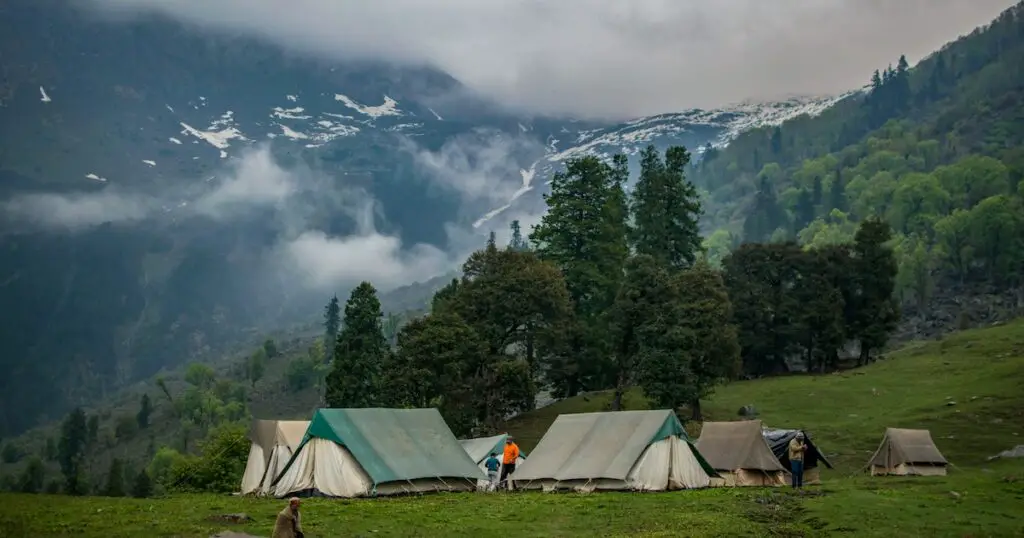
Backcountry Camping for Beginners
Backcountry camping is all about venturing into the great outdoors and immersing yourself in nature.
It’s not your typical camping experience at a designated campground with facilities like bathrooms and running water.
Instead, backcountry camping takes you off the beaten path, away from crowds, and into more remote areas.
Explore the Benefits of Immersing Yourself in Nature
One of the biggest benefits of backcountry camping is being able to disconnect from the hustle and bustle of everyday life.
It allows you to escape into nature, where you can breathe in fresh air, listen to the sounds of wildlife, and marvel at stunning landscapes.
Being surrounded by nature has been shown to reduce stress levels and improve mental well-being.
Get Tips on How to Make Your First Trip a Success
For beginner backpackers embarking on their first backcountry camping trip, there are a few essential tips to keep in mind:
- Research your destination: Look for backcountry camping locations that suit your skill level and interests.
- Pack light: Only bring essential gear and supplies to minimize weight.
- Plan your meals: Opt for lightweight and easy-to-prepare food options.
- Be prepared for emergencies: Carry a first aid kit and know basic wilderness survival skills.
- Leave no trace: Practice Leave No Trace principles by minimizing your impact on the environment.
By following these tips, you’ll increase your chances of having a successful and enjoyable backcountry camping experience.
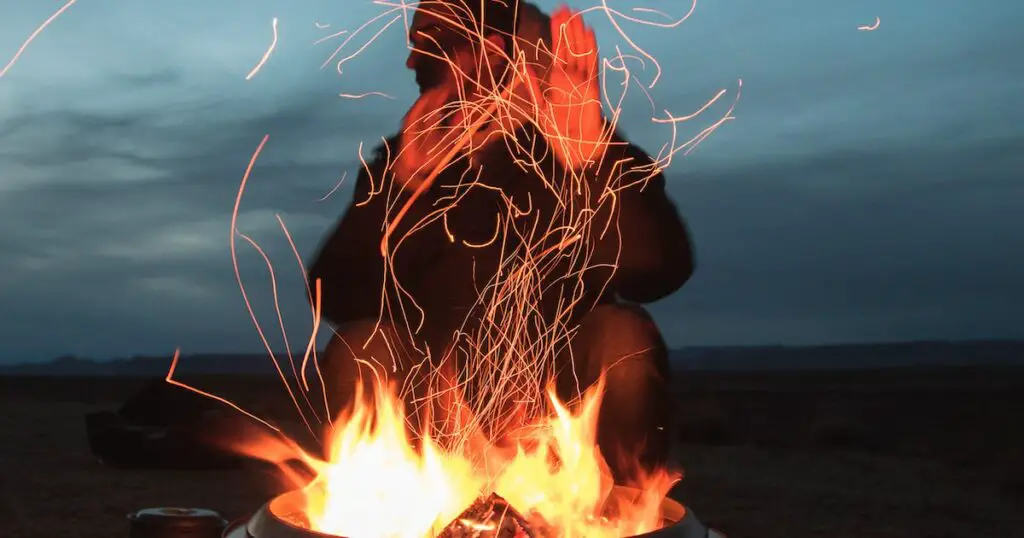
Benefits of Backcountry Camping: Why You Should Go
Backcountry camping offers the chance to escape the hustle and bustle of crowded campsites.
Instead of being surrounded by noisy neighbors and cramped spaces, you can find peace and tranquility in the great outdoors.
Imagine falling asleep under a sky full of stars, with only the sounds of nature lulling you to sleep. No loud music or chatter to disturb your serenity.
Connect with Nature on a Deeper Level
When you venture into the backcountry, you have the opportunity to connect with nature on a much deeper level.
You’ll be immersed in stunning landscapes, surrounded by towering trees, breathtaking mountains, and crystal-clear lakes.
You can observe wildlife in their natural habitats and witness awe-inspiring sunrises and sunsets that will take your breath away.
Being in such close proximity to nature allows you to appreciate its beauty and wonder like never before.
Challenge Yourself and Build Resilience through Outdoor Exploration
Backcountry camping isn’t just about relaxation; it’s also an opportunity for personal growth.
By stepping outside your comfort zone and embracing outdoor exploration, you challenge yourself physically and mentally.
Hiking through rugged terrains, carrying heavy backpacks, setting up camp in unfamiliar surroundings.
All these experiences build resilience and strengthen your character.
You’ll learn valuable skills like navigation, survival techniques, and problem-solving while gaining confidence in your abilities.
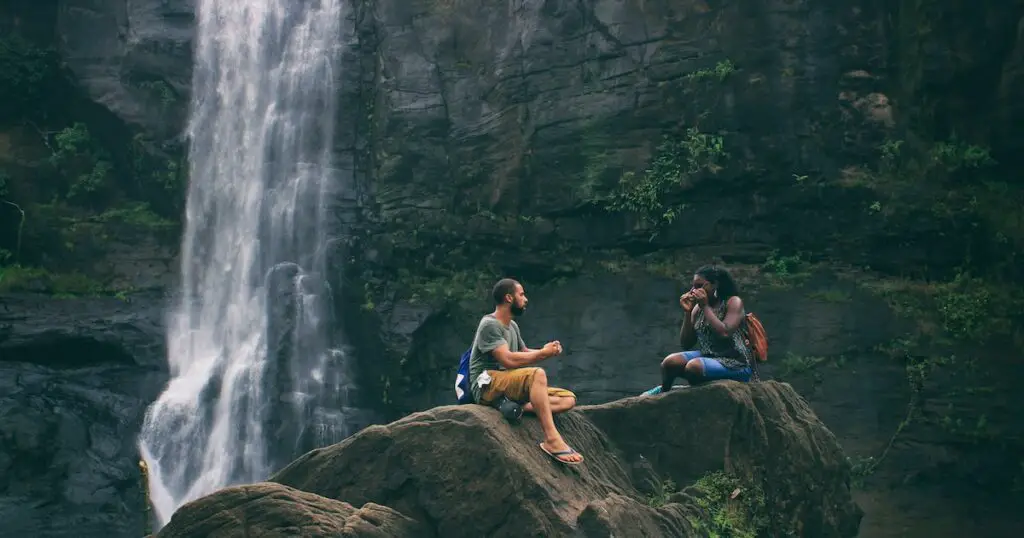
Essential Gear and Clothing for Beginners
Having the right gear and clothing is essential for a successful trip.
Let’s dive into some must-have items that will keep you comfortable and prepared in various conditions without breaking the bank.
Must-Have Gear
- A sturdy backpack: Choose one that fits your body well and has enough space for all your gear.
- A reliable tent: Look for a lightweight and durable tent that can withstand different weather conditions.
- Sleeping bag and sleeping pad: Invest in a warm and comfortable sleeping bag, along with a sleeping pad to provide insulation from the cold ground.
- Cooking equipment: Bring a lightweight stove, cookware, utensils, and food storage containers.
- Water filtration system: Ensure access to clean drinking water by carrying a portable water filter or purification tablets.
Clothing Essentials
- Base layers: Opt for moisture-wicking base layers made of synthetic or wool materials to keep you dry and warm.
- Insulating layers: Pack fleece jackets or down vests to provide warmth during chilly evenings.
- Rain jacket: Be prepared for unexpected showers with a waterproof rain jacket that can also serve as an extra layer against wind.
- Sturdy boots or hiking shoes: Invest in comfortable footwear with good traction to navigate various terrains.
- Extra socks: Pack extra pairs of moisture-wicking socks to keep your feet dry and prevent blisters.
Remember, when choosing gear and clothing, prioritize quality over quantity.
It’s better to invest in durable items that will last longer rather than buying cheap alternatives that may not hold up well in challenging conditions.
Consider renting gear or borrowing from friends if you’re just starting out. By having the right gear and clothing essentials.
You’ll be well-prepared for your backcountry camping adventure. Stay tuned for our next section on planning your itinerary!
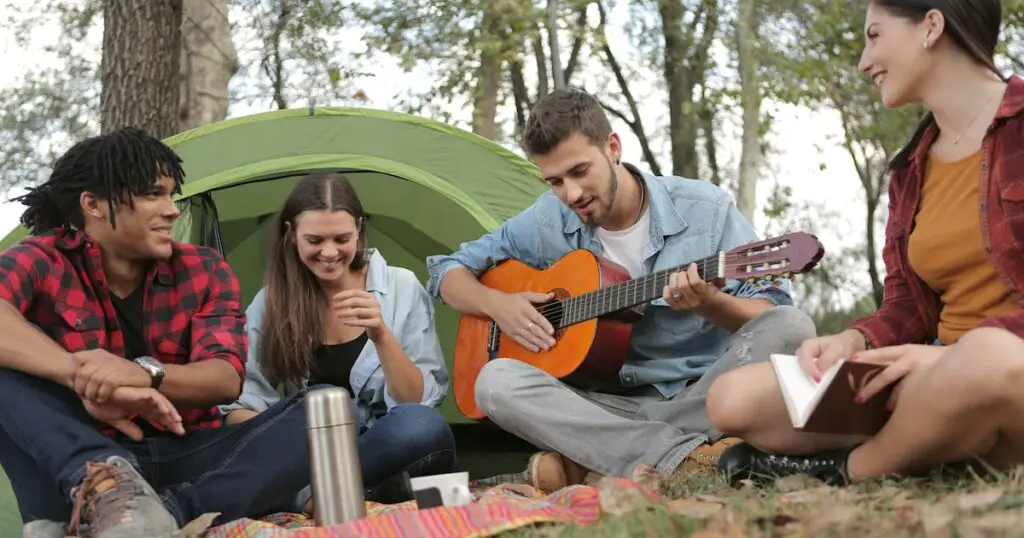
Planning Your First Backpacking Trip: Step-by-Step Guide
To plan your inaugural backpacking adventure, follow this comprehensive guide that will take you through each step of the process.
Whether you’re a beginner or have some experience, these tips will help you plan a successful and enjoyable trip.
Determine Suitable Destinations
Choose destinations that match your skill level and personal preferences. Consider the difficulty level of the trails, the terrain, and the weather conditions.
Some popular beginner-friendly destinations include:
- Yosemite National Park: Offers various trails for all levels of hikers.
- Appalachian Trail: Known for its beautiful scenery and well-maintained paths.
- Glacier National Park: Provides stunning views and diverse hiking options.
Create an Itinerary
Plan out your trip by creating an itinerary that includes details such as start and end points, daily distances, camping spots, and estimated timeframes.
This will help you stay organized during your journey.
- Research trail maps and gather information about campsites along the route.
- Calculate how many miles you can comfortably hike each day.
- Consider factors like elevation gain, water sources, and potential hazards.
Pack Food and Calculate Water Needs
Properly packing food is essential to sustain yourself during the trip. Keep in mind that lightweight options are preferred to reduce the weight of your backpack.
Here are some tips:
- Opt for dehydrated meals or lightweight snacks that require minimal preparation.
- Pack high-energy foods like nuts, granola bars, dried fruits, and jerky.
- Calculate your water needs based on availability along the trail. Carry enough water or bring a filtration system if necessary.
Remember to pack proof bags to keep your food safe from animals while camping.
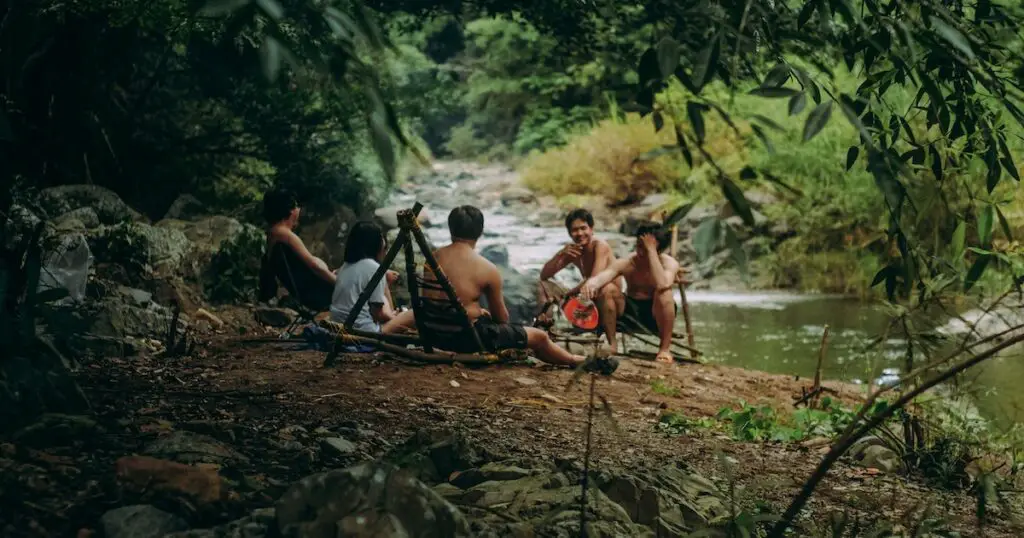
Building Fitness and Skills for Backcountry Camping
To fully enjoy the adventure of backcountry camping, it’s important to build your fitness and develop essential skills.
This will ensure that you’re physically prepared for the challenges ahead and equipped with the knowledge needed to navigate the wilderness safely.
Develop Physical Endurance through Training Exercises
Building your fitness is crucial when embarking on a backcountry camping trip.
Start by incorporating regular cardiovascular exercises into your routine, such as hiking, running, or cycling.
These activities will help strengthen your muscles and improve your endurance.
Consider adding strength training exercises to build core stability and support heavy pack carrying.
Enhance Wilderness Survival Skills
Survival skills are essential in the backcountry. Take time to learn how to build a fire using natural materials found in the wilderness.
Practice constructing different types of shelters like lean-tos or A-frame structures using available resources.
Familiarize yourself with proper food storage techniques to prevent encounters with wildlife.
Improve Navigation Abilities
Navigating in the wilderness can be challenging but exciting. Learn how to read maps, use compasses, or even utilize GPS devices if available.
Understanding these tools will help you stay on track during your journey and avoid getting lost. Remember, backcountry camping requires careful planning and preparation.
As you work on building your fitness level and honing survival skills, don’t forget to pay attention to other important factors like pack weight and calorie intake.
Keep a balance between carrying necessary gear without overburdening yourself while ensuring you have enough food for energy throughout your trip.
By dedicating time to improving both physical endurance and wilderness survival skills, you’ll be well-prepared for an unforgettable backcountry camping experience.
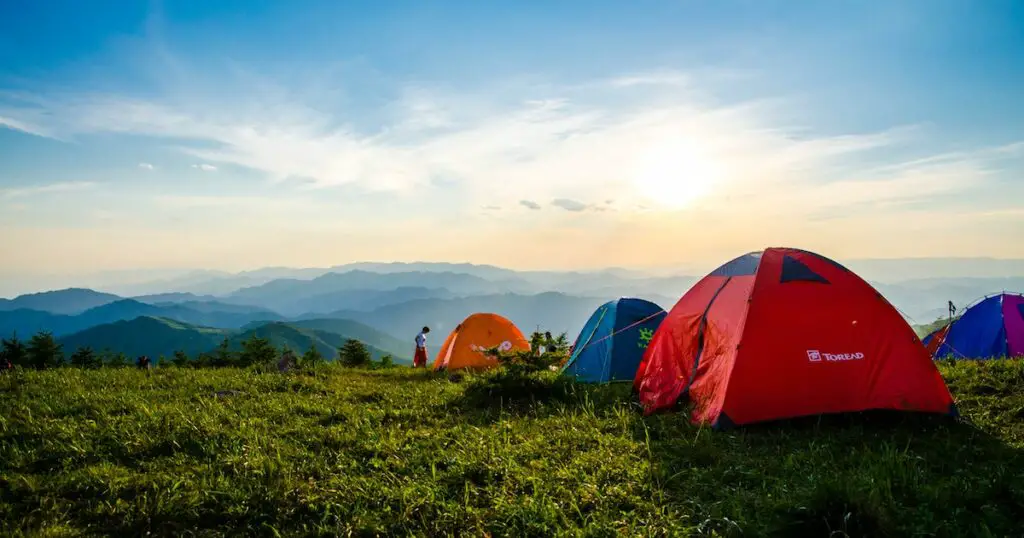
Leave No Trace Principles: Respecting the Environment
In backcountry camping, it’s crucial to understand and follow the Leave No Trace principles.
These guidelines help us minimize our impact on the environment while enjoying outdoor activities.
By practicing responsible techniques, we can preserve wildlife habitats and keep our natural surroundings pristine.
Understand the Importance of Leaving Minimal Impact on Natural Surroundings
When we venture into the backcountry, we must remember that we are guests in nature’s home.
It’s essential to leave minimal trace behind to protect the delicate balance of ecosystems. Here are a few key points to consider:
- Stay on designated trails: By sticking to established paths, we avoid trampling fragile vegetation and disturbing wildlife.
- Respect wildlife: Observe animals from a distance and never feed or approach them. This ensures their natural behavior remains undisturbed.
- Minimize campfire impact: Follow local regulations regarding campfires and use existing fire rings whenever possible. Properly extinguish fires before leaving.
Follow Guidelines to Preserve Wildlife Habitats While Enjoying Outdoor Activities
As outdoor enthusiasts, it is our responsibility to protect the homes of various species that inhabit these areas. Here’s how we can do that:
- Camp responsibly: Choose durable surfaces like rock or gravel for setting up tents instead of delicate meadows or wetlands.
- Keep noise levels down: Loud noises can disrupt wildlife and disturb their natural behaviors. Be mindful of your volume when in nature.
- Control pets: If you bring your furry friends along, make sure they are under control at all times and do not disturb wildlife or other visitors.
Practice Responsible Waste Management Techniques
Proper waste management is crucial for maintaining the cleanliness of natural spaces. Let’s take care of our environment by following these practices:
- Pack out what you pack in: Bring garbage bags with you and ensure all trash is properly disposed of outside the backcountry area.
- Dispose of human waste properly: Use designated toilets or bury waste in a cathole at least 6-8 inches deep and 200 feet away from water sources.
- Minimize single-use items: Opt for reusable containers and utensils to reduce the amount of waste generated during your trip.
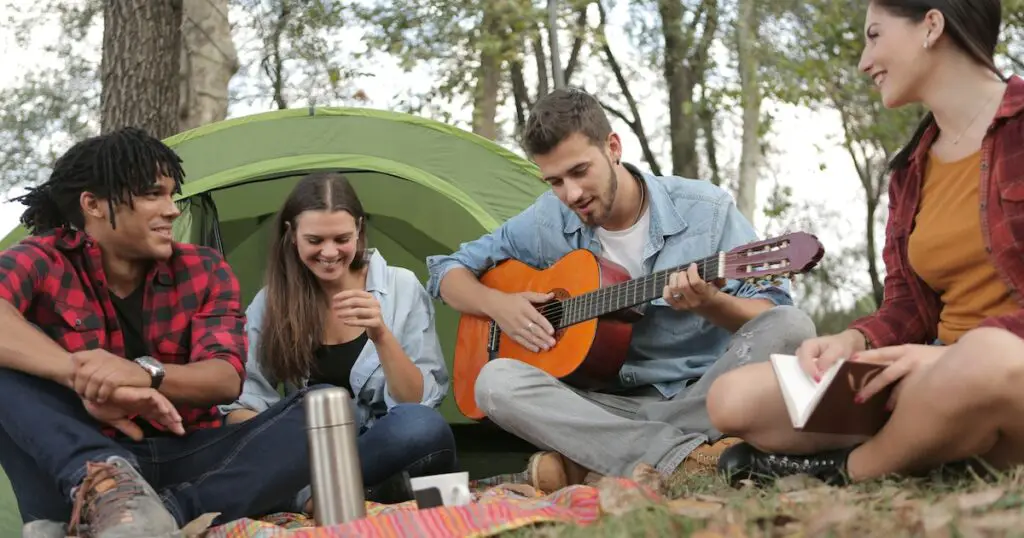
Navigating the Wilderness: Maps and Navigation Skills
To have a successful backcountry camping trip, it’s crucial to learn basic map reading skills and familiarize yourself with different types of maps used in wilderness navigation.
Mastering compass usage techniques will also help you accurately orient yourself in the wilderness.
Learn basic map reading skills essential for successful backcountry trips
Having the right skills is key.
Start by understanding how to read paper maps, which provide valuable information about the terrain, elevation, and landmarks in an area.
It’s important to pay attention to symbols and legends on the map that indicate features like water sources, trails, and campsites.
Familiarize yourself with different types of maps used in wilderness navigation
In addition to paper maps, there are digital options available such as GPS devices or smartphone apps that provide detailed topographic maps.
These tools can be helpful for tracking your location and planning routes.
However, it’s essential to remember that technology may not always be reliable in remote areas where signal strength can be weak or non-existent.
Therefore, it’s wise to carry a backup paper map as well.
Master compass usage techniques for accurate orientation
A compass is an invaluable tool for navigating through the wilderness.
It helps you determine direction even without access to electronic devices or when visibility is poor due to weather conditions.
Learning how to use a compass involves understanding cardinal directions (north, south, east, west) and using them in conjunction with your map.
By combining your map reading skills with compass usage techniques.
You’ll be able to confidently navigate through unfamiliar terrain while enjoying your backcountry camping adventure safely.
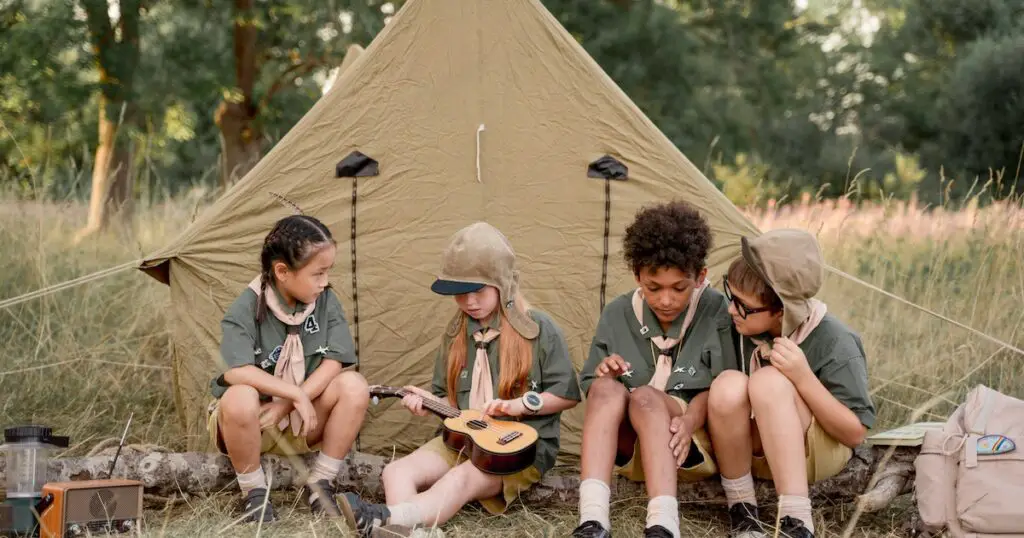
Embracing the Adventure of Backcountry Camping
Backcountry camping can be intimidating for beginners, but it’s all about embracing new challenges and experiences.
Don’t let your fears hold you back from embarking on this exciting adventure.
Push yourself out of your comfort zone and discover the thrill of backpacking through untouched landscapes.
Immerse Yourself in the Beauty of Untouched Landscapes
One of the greatest rewards of backcountry camping is immersing yourself in the beauty of nature’s untouched landscapes.
Leave behind the crowded campsites and venture into the wilderness. Where you’ll find breathtaking views, serene lakes, towering mountains, and abundant wildlife.
Experience the tranquility that comes with being surrounded by nature’s wonders.
Create Lasting Memories and Forge Connections
Backcountry camping offers a unique opportunity to create lasting memories and forge connections with fellow adventurers.
Whether you’re traveling solo or with friends, sharing a backpacking trip creates bonds that are hard to replicate elsewhere.
From setting up camp together to cooking meals over a campfire, these shared experiences will create stories that you’ll cherish for years to come.
Prepare for Your Backcountry Adventure
To ensure a successful backcountry camping experience, it’s crucial to prepare properly. Here are some key tips:
- Invest in quality backpacking gear: A sturdy backpack, lightweight tent, sleeping bag, cooking equipment, and appropriate clothing are essential.
- Research your camping style: Decide whether you prefer long-distance hiking or shorter day hikes from a basecamp.
- Pack smart: Prioritize lightweight essentials like freeze-dried meals, water filters or purifiers, first aid kits, navigation tools (maps or GPS), extra layers for changing weather conditions.
- Wear proper footwear: Invest in comfortable hiking boots that provide support and traction on various terrains.
- Learn basic wilderness skills: Familiarize yourself with basic navigation, campsite selection, and Leave No Trace principles.
By embracing the adventure of backcountry camping, you’ll discover a whole new world of outdoor exploration.
Overcome your fears, immerse yourself in nature’s beauty, create lasting memories, and prepare for an unforgettable journey into the wilderness.
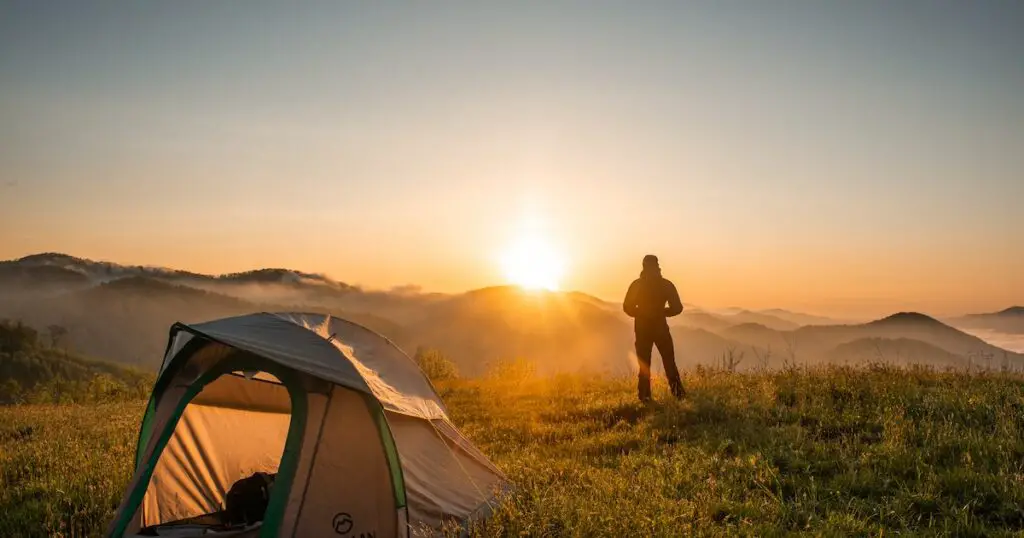
Conclusion
In conclusion, backcountry camping is an exhilarating adventure that offers a unique escape from the hustle and bustle of everyday life.
The completed sections before this conclusion have provided valuable insights for beginners, covering topics such as the benefits of backcountry camping.
Essential gear and clothing, trip planning, building fitness and skills, Leave No Trace principles, and navigation skills.
By embracing these fundamentals, aspiring backcountry campers can embark on their first wilderness excursion with confidence.
To truly make the most of your backcountry camping experience, it is essential to approach it with the right mindset.
Embrace the adventure wholeheartedly and be prepared for both challenges and rewards along the way.
Remember to prioritize safety by thoroughly researching your destination, packing appropriate gear, and acquiring necessary skills.
Respect nature by adhering to Leave No Trace principles and minimizing your impact on the environment.
FAQs
Q1: What should I pack for my first backcountry camping trip?
A1: When packing for your first backcountry camping trip, it’s important to prioritize lightweight essentials such as a tent, sleeping bag, cooking equipment (stove/pot), food supplies (dehydrated meals are popular), water filtration system or purification tablets, appropriate clothing layers (including rain gear), sturdy footwear suitable for hiking trails, a headlamp or flashlight with extra batteries, a map and compass (or GPS device).
Q2: How do I choose a suitable location for my first backpacking trip?
A2: When selecting a location for your first backpacking trip, consider factors such as distance from home (to manage travel time), difficulty level (start with beginner-friendly trails), availability of water sources (for hydration purposes), presence of established campsites or shelters (if you prefer more amenities).
Q3: How can I build my fitness and skills for backcountry camping?
A3: Building fitness and skills for backcountry camping requires a combination of cardiovascular exercise, strength training, and practicing relevant outdoor skills. Incorporate activities such as hiking, running, cycling, and swimming into your routine to improve endurance.
Q4: What are Leave No Trace principles?
A4: Leave No Trace principles are guidelines that promote responsible outdoor recreation while minimizing environmental impact. The seven principles include planning ahead and preparing, traveling and camping on durable surfaces, disposing of waste properly (including human waste), leaving what you find (no picking flowers or removing natural objects), minimizing campfire impacts (using established fire rings or stoves).
Q5: How do I navigate in the wilderness without getting lost?
A5: Navigating in the wilderness without getting lost requires basic map reading skills and an understanding of navigation tools such as compasses or GPS devices.

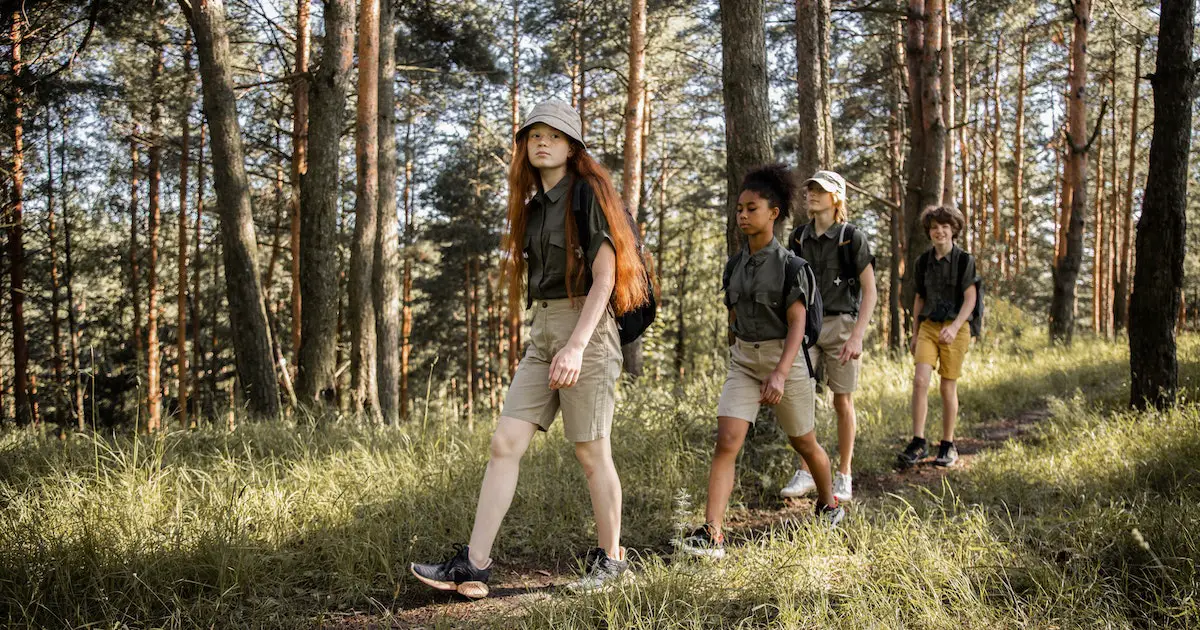
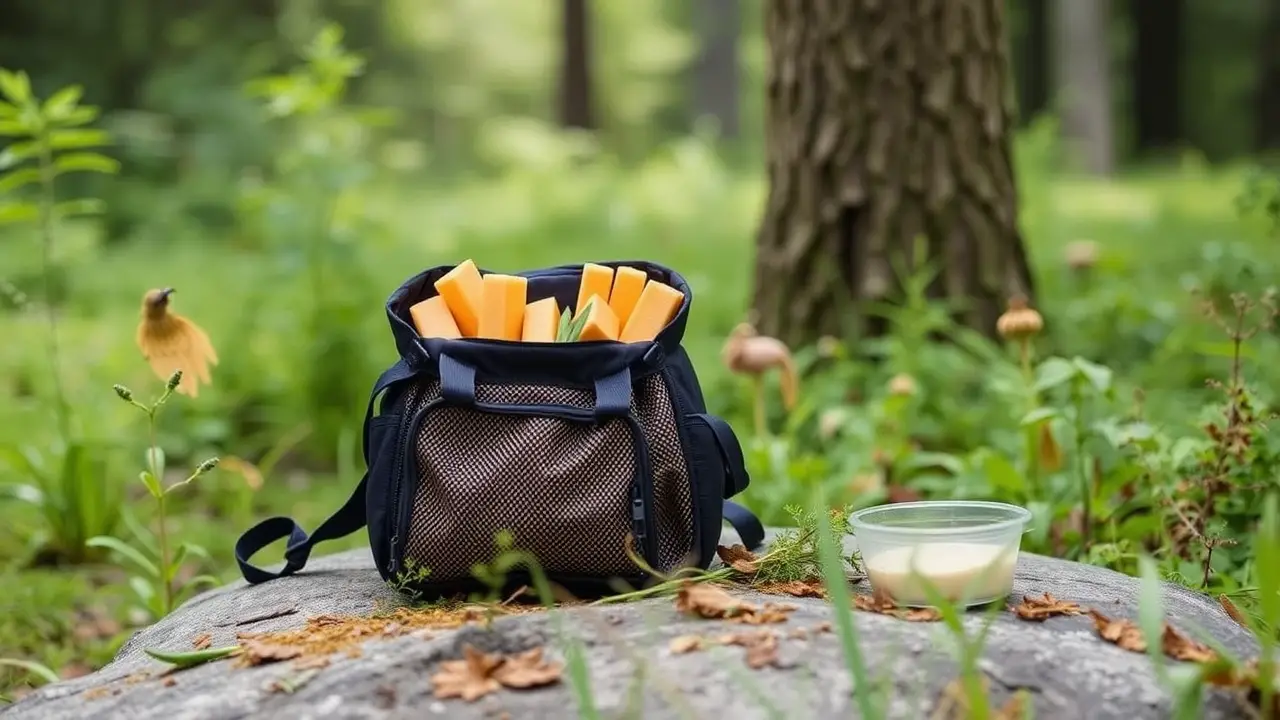
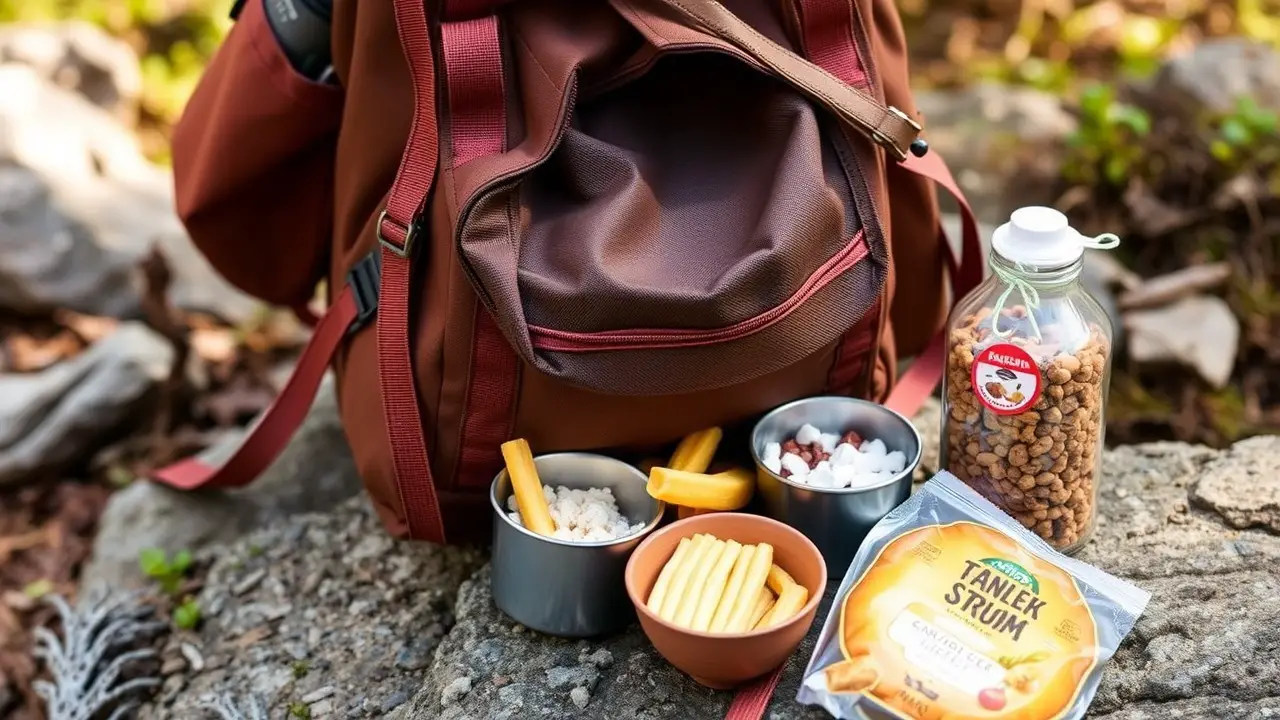
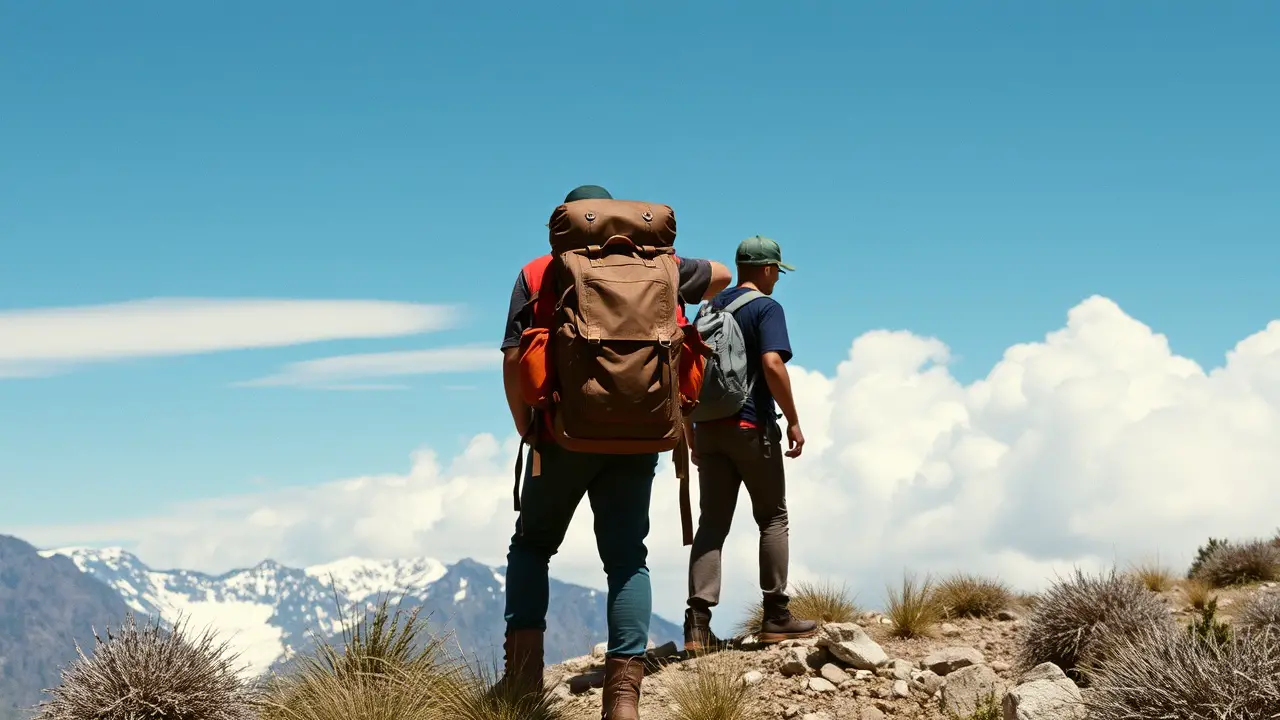
Leave a Reply